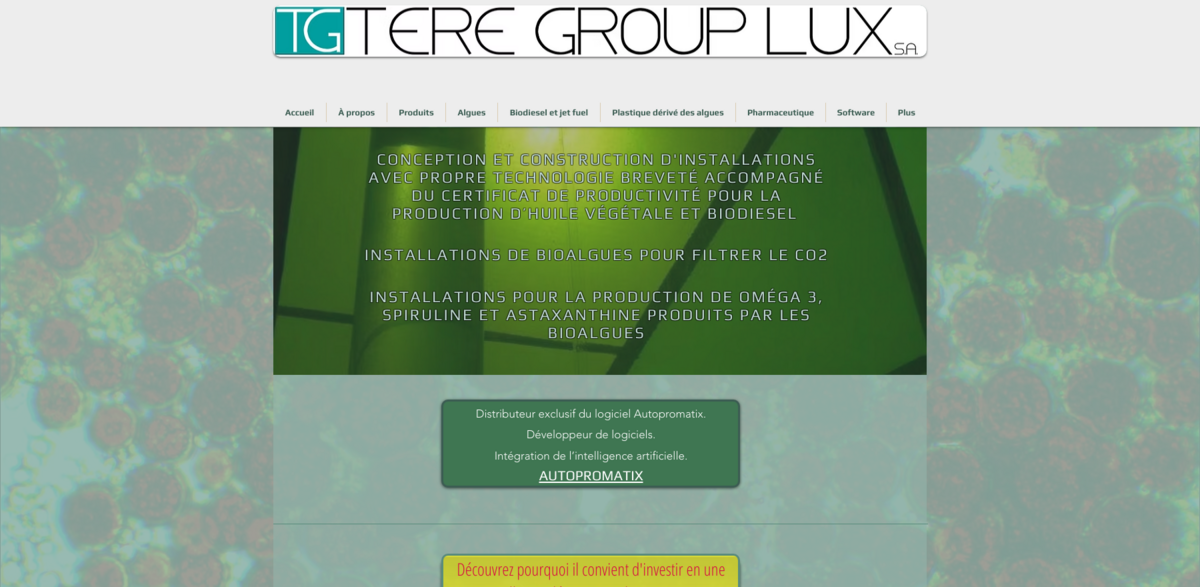What is Teregroup’s New Green Chemistry Refinery?
Teregroup has unveiled a cutting-edge refinery specialized in “green chemistry” that’s set to transform vegetable oil derived from their algae into biodiesel. This isn’t just any refinery—it’s a game-changer in sustainable fuel production. By harnessing algae, Teregroup taps into a renewable resource that can help reduce reliance on fossil fuels. The company stands out as the only representative for Italy at the Algae Biomass Organization congress in Washington, where they’re diving deep into the huge opportunities the U.S. Government is offering. Specifically, algal installations are now being recognized as biofilters to combat carbon dioxide emissions—a big step forward in the fight against climate change.
Main Benefits of Teregroup’s Technology
Here’s a quick snapshot of the key figures and facts that make this project so promising:
- New installation covers 300,000 square meters dedicated to biofiltration.
- Capable of filtering 300,000 tons of CO2 using microalgae.
- The U.S. Environmental Protection Agency (EPA) has given the green light for capturing and using CO2 from power plants.
- The Clean Power Plan supports state-level use of CCU (Carbon Capture and Utilization) technologies to reduce atmospheric CO2.
- Algae-based technologies convert CO2 into valuable products like vegetable oil, feed, and fertilizers.
- Turnkey installations for biodiesel production can help road transport companies cut fuel overheads by up to 30%.
- Potential savings of €0.67 per liter of fuel, based on calculations for the Italian market.
Biofiltration and Carbon Capture Innovation
Teregroup isn’t just talking the talk—they’re walking the walk with new technology designed to biofilter carbon dioxide and digestate produced by biogas stations. This means they’re tackling emissions from multiple angles, not just CO2 from power plants but also waste products from biogas. The scale of their installations is impressive, with a massive 300,000 square meters dedicated to microalgae biofiltration. This approach not only captures harmful gases but also turns them into something useful, closing the loop in a sustainable way.
Regulatory Support and Market Opportunities
The regulatory landscape is shifting in favor of these green technologies. The U.S. EPA’s approval and the Clean Power Plan’s endorsement of CCU technologies open doors for companies like Teregroup. This legal backing means that algae-based carbon capture isn’t just environmentally smart—it’s also economically viable. Companies can now market algae technologies that convert CO2 into a range of products, from vegetable oil to fertilizers, creating new revenue streams while helping the planet.
Proven Performance of Algae-Based Biodiesel
Teregroup has already put their biodiesel to the test. At the University of Modena, the algae-extracted biodiesel was tested on standard engines without any modifications. The results? Surprising and promising. The biodiesel delivered the same power and torque as commercial diesel but with significantly reduced particle emissions. This means cleaner air without sacrificing performance. Plus, Teregroup is the first company in Europe to have conducted these tests, proving their leadership in the field. Their biodiesel also meets new European standards, ensuring it’s ready for widespread use.
Project Impact on Sustainable Development Goals (SDGs)
- SDG 7: Affordable and Clean Energy – by producing renewable biodiesel from algae.
- SDG 9: Industry, Innovation, and Infrastructure – through innovative biofiltration and carbon capture technologies.
- SDG 12: Responsible Consumption and Production – by turning CO2 emissions into valuable products.
- SDG 13: Climate Action – by reducing greenhouse gas emissions with algae biofilters.
- SDG 15: Life on Land – by promoting sustainable use of natural resources and reducing pollution.
Expanding Reach in Benelux and Germany
Beyond Italy and the U.S., Teregroup is actively selling plants for the intensive cultivation of Algamoil in the Benelux region and Germany. These installations focus on sequestering CO2 and producing biofuel, tapping into the growing European demand for sustainable energy solutions. This expansion highlights the scalability of Teregroup’s technology and its adaptability to different markets. With growing environmental regulations and increasing fuel costs, these algae-based biofuel plants offer a timely and effective solution for companies looking to reduce their carbon footprint and operational expenses.


















